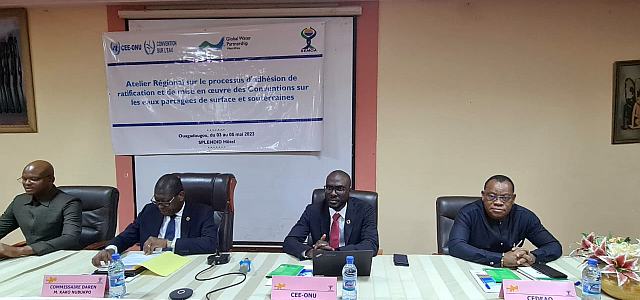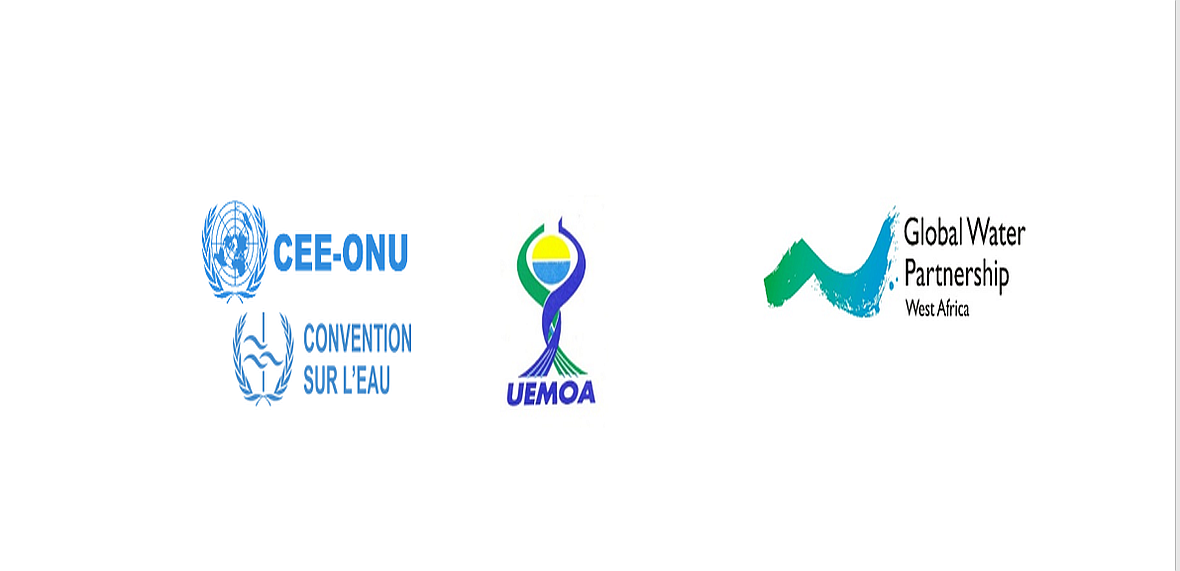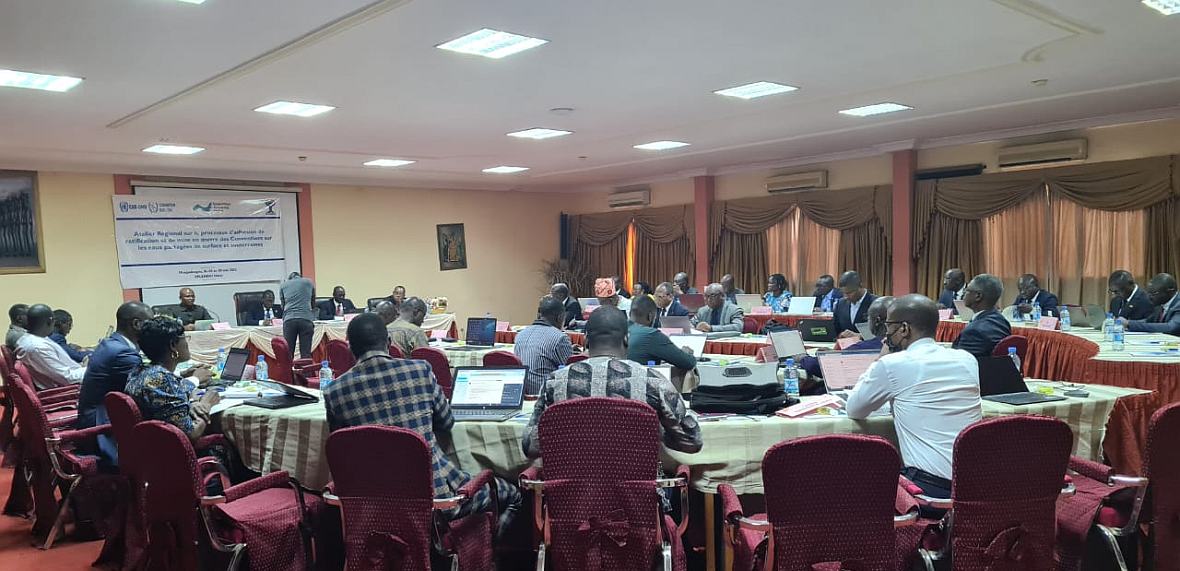 A regional workshop held from 3 to 5 May 2023 in Ouagadougou, Burkina Faso, to build the capacities of the actors of the WAEMU Member States in the promotion of sustainable development and cooperation in the field of transboundary waters. The initiative is part of the implementation of : (i) the West African Water Resources Policy (WAWRP) developed in a participatory manner by the ECOWAS Commission in close collaboration with the UEMOA Commission and the CILSS and (ii) the UEMOA Common Environmental Improvement Policy (PCAE), which focuses on one of the strategic axes of the UEMOA, namely the promotion of cooperation and regional integration for the development of relations between States, Basin Organisations and regional organisations in order to ensure concerted, integrated, sustainable and peaceful management of water resources in West Africa.
A regional workshop held from 3 to 5 May 2023 in Ouagadougou, Burkina Faso, to build the capacities of the actors of the WAEMU Member States in the promotion of sustainable development and cooperation in the field of transboundary waters. The initiative is part of the implementation of : (i) the West African Water Resources Policy (WAWRP) developed in a participatory manner by the ECOWAS Commission in close collaboration with the UEMOA Commission and the CILSS and (ii) the UEMOA Common Environmental Improvement Policy (PCAE), which focuses on one of the strategic axes of the UEMOA, namely the promotion of cooperation and regional integration for the development of relations between States, Basin Organisations and regional organisations in order to ensure concerted, integrated, sustainable and peaceful management of water resources in West Africa.
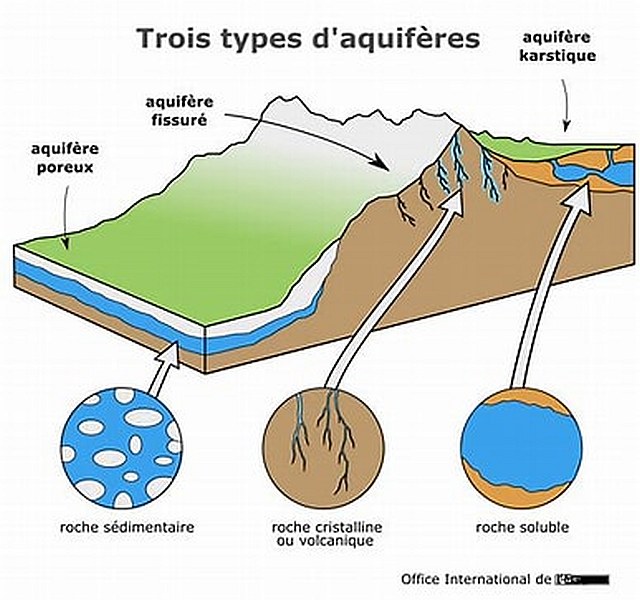 Worldwide, there are more than 310 river basins and 468 shared aquifers. These, shared between two or more states, account for about 60% of the world's freshwater resources, serving more than three billion people, or over 40% of the world's population. Freshwater and shared complex transboundary ecosystems cross a myriad of political boundaries and cover a wide range of sectoral needs and issues. Water cooperation is therefore crucial for sustainable development and action for peace and climate resilience.
Worldwide, there are more than 310 river basins and 468 shared aquifers. These, shared between two or more states, account for about 60% of the world's freshwater resources, serving more than three billion people, or over 40% of the world's population. Freshwater and shared complex transboundary ecosystems cross a myriad of political boundaries and cover a wide range of sectoral needs and issues. Water cooperation is therefore crucial for sustainable development and action for peace and climate resilience.
West Africa is a diverse region, home to a third of Africa's population. Its fairly dense hydrographic network is marked by a large number of large rivers and 28 transboundary basins, corresponding to just under half of Africa's 60 or so international rivers, while its territory represents less than a quarter of the continent's surface area. Transboundary water resources account for 80% of surface water in Africa.
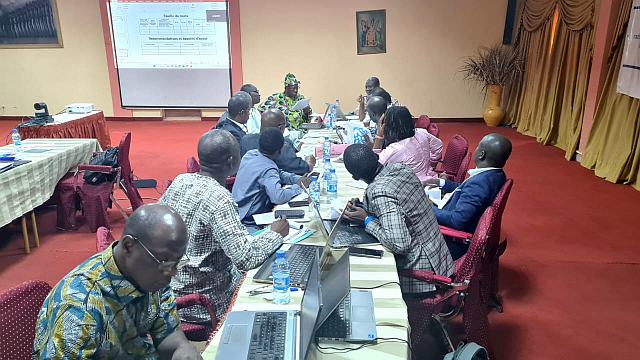 At the community level, most of the UEMOA area, i.e. 3.5 million km², is located in arid and semi-arid Sahelian and even desert zones. Although the region is characterised by significant surface and groundwater availability, it still faces major water resource management challenges both at national level and at the level of shared river basins and aquifers.
At the community level, most of the UEMOA area, i.e. 3.5 million km², is located in arid and semi-arid Sahelian and even desert zones. Although the region is characterised by significant surface and groundwater availability, it still faces major water resource management challenges both at national level and at the level of shared river basins and aquifers.
Once water is available and shared by several states, the situation becomes more complicated in terms of the rules for its sharing and distribution. International co-operation in the management of shared transboundary waters is therefore essential for the economic and social development of the countries bordering transboundary rivers in the region. It is also essential for reducing water-related risks, such as floods and droughts, and for building the resilience of people and ecosystems to climate change.
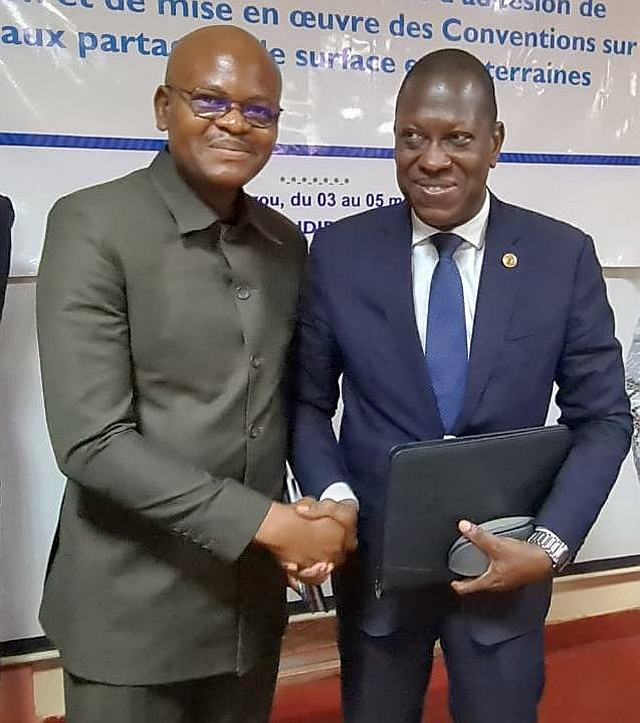
At the global level mechanisms have been put in place including Conventions to facilitate transboundary cooperation. These include the 1997 Convention on the Law of the Non-navigational Uses of International Watercourses (Watercourses Convention), the 1992 Convention on the Protection and Use of Transboundary Watercourses and International Lakes (Water Convention) and the "United Nations Resolution A 63/124 on the Law of Transboundary Aquifers", adopted by the United Nations General Assembly on 11 December 2008.
Adherence to these Conventions promotes the strengthening of the legal, technical and institutional basis for cooperation, as well as national governance of water resources. The United Nations (UN) therefore encourages countries to accede to and implement the Conventions.
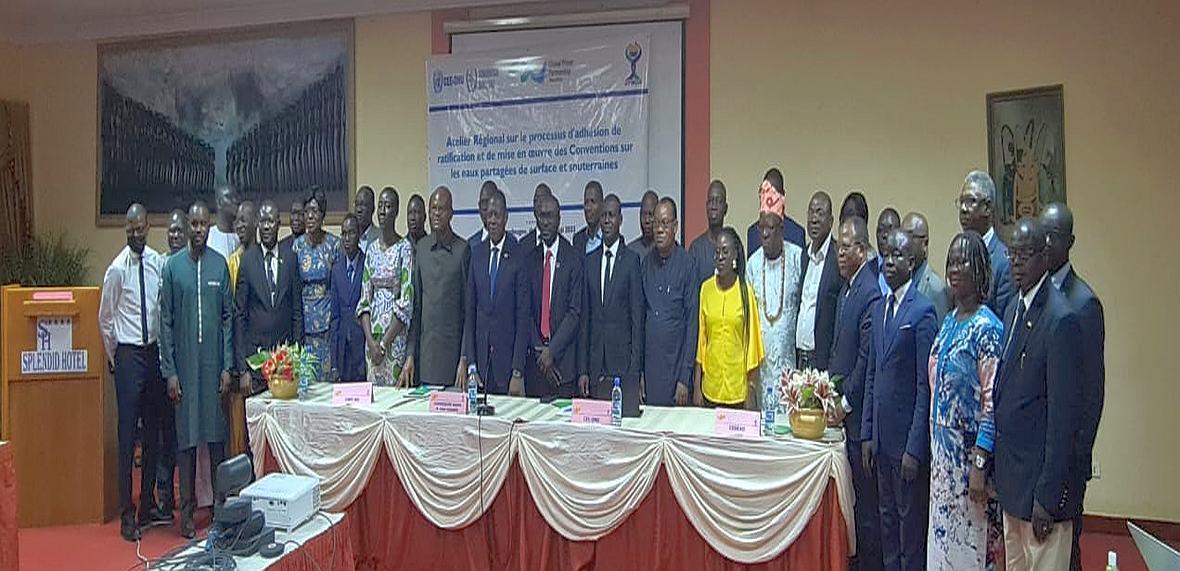
This regional meeting therefore aimed to support UEMOA Member States in the processes of accession, ratification and appropriation of the tools for implementing the global conventions on shared waters. The aim is to increase the capacities of the Union's actors on the content, political and legal scope as well as the tools, knowledge and skills required to promote and implement the Conventions.
The regional workshop will enable the stakeholders of the Countries and Transboundary Basin Organizations (TBOs) to understand the functioning of the institutional mechanism of the said Conventions and their activities by emphasizing the challenges, opportunities and concrete benefits, including those related to indicator 6.5.2 of SDG 6, of their practical implementation so as to contribute to the promotion and reinforcement of cooperation on transboundary waters in the UEMOA Space and globally in West Africa.
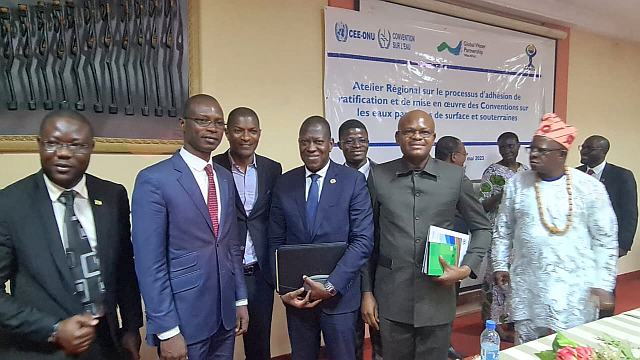
The meeting was attended by the officials in charge of the directorates and technical services in charge of water resources management and governance as well as of foreign affairs of the Member States; the representatives of the Transboundary Basin Organizations; the technical and financial partners; regional and international development financing institutions and banks; the Secretariat of the Water Convention (UNECE); the Implementation Committee of the Water Convention; the United Nations Capital Development Fund (UNCDF) and representatives of sub-regional institutions ( UEMOA Commission, ECOWAS Commission, CILSS).
The official ceremony was chaired by Professor Kako Nubukpo, Commissioner in charge of the Department of Agriculture, Water Resources and Environment (DAREN) at the UEMOA Commission.
